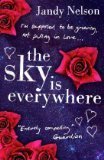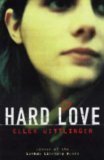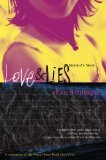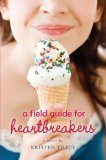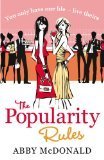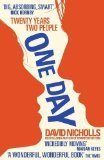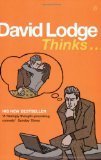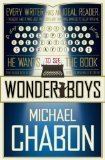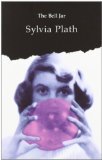Claire Hennessy's Blog, page 31
September 2, 2012
Drafts: a thought or two
In Anne Lamott’s Bird By Bird, there is a chapter entitled ‘Shitty First Drafts’. The basic premise is that you give yourself permission to write something messy and then you go clean it up. That first drafts are always rubbish, anyway.
It is a fairly common idea and one that many writers (and writing teachers) recommend, or at least variations of it; it doesn’t work for everyone, though. There are writers who tinker and tweak that first page or first line until it’s just right. (If this is the way you work, it’s not working for you if you don’t actually finish anything, though.)
I think for many writers, though, the first draft is somewhere in between complete trash and all-shined-up perfection – it’s actually a pretty decent draft. And for writers who work like this, maybe the idea of the ‘shitty first draft’ isn’t so useful. It can feel like you’re pretty much there if you’ve got a ‘pretty decent first draft’ instead. When in fact you’re never looking for the ‘pretty decent’, the ‘it’ll do’. You’re looking for the ‘polished as much as I can polish it’. No matter what you start off with.
August 27, 2012
How to contact a writer
Recently Sarah Dessen talked about getting an obnoxious email from someone when she didn’t reply to someone to help with a book report. It didn’t surprise me. Sarah Dessen obviously gets bucketloads more fan mail than, well, most of us, but this happens. It does.
Recently I had a conversation with another writer about getting sent manuscripts to read (‘tell me if it’s any good!’) from people out of the blue, and how to deal with that. This happens too. And it’s tricky in all sorts of ways.
I think there’s a lot fuzziness out there in the world about what is okay, and what is not okay, to contact an author about. And the ease of communication – social media as well as email – means it’s so much easier to get in touch, and easier to have a sense that you’re owed a response. (‘She RTed me that time! Why has she not read my manuscript and sent it to her publisher yet?!’)
I have… not necessarily the definitive guide, because every writer is different, but some things for people to consider, based a little on my own experience but also on paying attention to what many others have said about correspondence with readers.
Some writers respond to fan mail (and by this I mean communications that are just appreciative, rather than asking for something); some don’t. Of those that respond, some will do personal responses and some will do a generic reply. Whatever they do… it’s their choice. There is no ‘rule’ that says authors must reply to all fan mail personally. I have never heard or seen any writer declare that they hated getting fan mail (or that they didn’t read and appreciate it very much) – it is almost always about time. Personal responses take time, and time is something almost everyone is short of. Neil Gaiman once spoke about how he’d become someone who ‘answered emails professionally, and wrote on the side’ – I think most people would prefer authors keep writing books.
Fan mail tends not to be treated in a time-sensitive manner. If an author gets an email from their editor or agent with a big long list of things that need to be sorted out about their work-in-progress in the next fortnight, and one from Little Suzie wanting to know if they have any tips for her… well. (Snail mail also tends to go via a publisher, which means it can take longer to actually arrive in the author’s hands than you might expect.) Even if you do hope for a response, it is unlikely to be as super-speedy as you’d like.
If you have a question to ask a writer – whether it’s about their books or their writing career or you’re looking for advice – do your research first. Go to their website, do a Google search, find out as much as you can that way. (There is a reason many authors’ websites have things like Frequently Asked Questions or sections on writing advice – these are things that come up over and over again.) An awful lot of people don’t bother doing this, and it’s one of the reasons why many writers do auto-responses.
Find out what the author’s policy is on communication – some may note that it takes them X amount of time to get back, or say that it’s better to get them on Twitter, or Tumblr, or something like that. Everyone does things slightly differently.
It is never an author’s job to do your homework for you. If your teacher has said you need to get a response from a writer (whether this is a book report, an assignment on ‘becoming a writer’, etc), he/she is in the wrong. It is never anyone else’s job to do your homework for you. It is not the job of an author you’ve never met to make him or herself available for your often time-sensitive questions. (Laurie Halse Anderson has a policy on her website; Holly Lisle has a slightly snarkier page about it.) I suspect that teachers who assign things like this feel it shows students will go the extra mile if they get a response from an author – but the focus should be on what the student is doing, not how/when/what the author responds.
Even if you’re, say, Facebook ‘friends’ with an author, it’s better to err on the side of formality/professionalism when sending a message or email – avoid acronyms and internet shorthand and all that jazz. (If there’s ongoing correspondence, take your cue from them – some writers can OMG and !!! with the best of ‘em. Others will genuinely see your ‘by d way i tink ur awesome!!!’ as indicative of a lack of respect or clued-in-ness, because the level of written-word casualness that exists online is a relatively new phenomenon and is still best avoided in most messages that are not to someone you know well.)
Do not send email attachments – some email servers will block these immediately. If you have something that can’t be placed in the body of a text – like fan art – upload it somewhere else and include a link, or ask if you can send it on.
Do not send writers your manuscript (of a story, of a novel, of your poetry collection, whatever). More on that here. There are of course exceptions to this rule – some authors will run competitions on their blogs and invite submissions, and if you’ve been corresponding with someone for a while the rules can shift because this isn’t an initial-email-to-someone-in-their-professional-capacity situation anymore.
If you’re asking an author for advice on something personal – like maybe it’s something they’ve written about in their books – just be careful, okay? Protect yourself a little bit, just in case they are among the writers who don’t reply or maybe take ages – it doesn’t mean they don’t care or that there isn’t anyone else out there you can talk to. (Some writers love giving advice; others are very wary of it. I can see both sides of this one – it is a really, really tricky area.)
A lot of this applies across the board. If you’re asking someone you don’t know or barely-know for a favour, there’s a really good chance that they’ll say no. You increase the chances by being kind and respectful and understanding and doing your research, but they still might say no or not reply or not reply quickly. It’s almost certainly because they’re busy doing other things, work things or life things, and not because they’re selfish terrible awful people who must go on your List Of Mortal Enemies.
(any excuse for a Big Bang Theory clip…)
August 19, 2012
Author Appreciation Post: Maeve Binchy
And now for another author appreciation post.
Like an awful lot of people in Dublin, Ireland, the writing community, the reading community, and, well, the English-speaking world, I was saddened and shocked to hear of Maeve Binchy’s at the end of July this year. (I was also furious about That Wretched Telegraph Article, but the less said about that, the better.)
I read Maeve Binchy as a preteen, first. We had some of her most recent books, in hardback, in the house; I remember my grandmother passing on her thick paperback copy of The Glass Lake to me at some stage too. I remember Binchy as an author adults seemed to have shared conversations about, rather than just recommending Book X or Book Y to one another.
I soaked up Circle of Friends and Light A Penny Candle and Firefly Summer, all of them set in an Ireland I’d never known and only caught glimpses of. I’ve reread those books more often than I can count. Light A Penny Candle opens with the smart black coat, like a magic carpet, and then Violet wondering what to do about Elizabeth; Circle of Friends is ‘Benny Hogan, Ten’ on the birthday cake except it isn’t; Firefly Summer is John and Kate in Ryan’s pub in Mountfern. I love the mix of the huge incidents and the small ones – the court cases and the violent incidents or accidents alongside the picking of dresses or going for lunch with someone.
I wasn’t mad about Tara Road, nor did I understand why it had been chosen over others by Oprah; I should explain that ‘not mad about’ in terms of Maeve Binchy means I’ve still read it twice, possibly three times. It was only a few years ago that I did a big catch up on all the recent ones, the modern-Dublin ones from Scarlet Feather on with all the tie-in characters. It was soothing and addictive at the same time.
Maybe ‘soothing’ is the wrong word; there is something very warm about the books, and often hopeful, but also honest. There are bad guys who don’t necessarily get caught, or get caught the way they should; there are people who have to suffer for no good reason. There are misunderstandings and often disasters; there are people who take advantage of others and will never understand their family members and be generally dreadful human beings. But for the main characters at least, there’s love of some kind – love of a spouse, a child, a sibling, another relative, a community, their own business – and it’s redeeming in all kinds of ways.
I’m not a fan of some of the books; I think the short stories slipped into Heart and Soul are done far less skilfully than they are in Quentins, for example. There are matter-of-fact hints of disapproval over certain young-people behaviours that irked me, too (a generational thing, I suspect). Nevertheless, when I dove into my rereadathon this year, something I’d had half a mind to do before hearing of her death, I found myself with a limited choice of texts. I’d reread all my favourites so many times, and reread many of the others recently (or in the case of Minding Frankie, read for the first time recently). So I’ve been finding new favourites among the more modern books – Scarlet Feather, Quentins, and Evening Class. (I am still not sure how ‘modern’ I believe them to be, but that’s another story. I love the small-business side of things a lot more than I did as a younger reader; the school politics are also fascinating.)
It’s almost inevitable that when a writer is prolific, you won’t love everything they write. But I can’t think of very many authors I have revisited quite as often I have Maeve Binchy, ones who’ve written several books I can get lost in over and over again. I’m glad her ‘retirement’ twelve years ago proved to be false, and very sad that she didn’t get the chance to keep proving it so. We’ll see one final book from her, out in October – A Week In Winter – and like many readers out there, I’m very much looking forward to it.
“I don’t have ugly ducklings turning into swans in my stories. I have ugly ducklings turning into confident ducks.”
- Maeve Binchy
August 12, 2012
Book-review post!
(Back to the YA and preteen reads this time around.)
Ruth Frances Long – The Treachery of Beautiful Things
Out this week! Seventeen-year-old Jenny follows the music into the forest where her brother disappeared years before, and gets caught up in a world where nothing is quite as it seems. Ruth’s debut YA novel (she has written for adults previously) is an absolute treat for anyone into their fairy tales, folk tales, mythology, dark fantasy, and romance. There are layers of allusions to different archetypal figures, and lots of playing about with them… it’s delightful, and anyone who’s a fan of folklore (especially from the British Isles) will adore it. There is also a gorgeous love story going on (oh, Jack!), and high stakes all over the place. Definitely one to check out.
Abby McDonald – The Anti-Prom
Not my very favouritest of Abby McDonald’s books (would recommend Getting Over Garrett Delaney and Life Swap over this), possibly because the attention is split between three protagonists, but still an enjoyable read. On the night of the prom, three very different girls find themselves teaming up to right various wrongs. It’s nicely done – a nifty twist on prom stories. And the girls are very different from one another without being stereotypes, which is always refreshing.
Cathy Cassidy – Marshmallow Skye (The Chocolate Box Girls)
The second Chocolate Box Girls book, about a blended family and the chocolate shop their parents run, focuses on dreamy Skye, who’s feeling left out of things with her friends and twin sister, Summer. She slips more and more into a fantasy world of the past throughout the book, and there’s a lot of insights into what it’s like to be thirteen and finding your own identity. (It’s a Cathy Cassidy novel, of course it’s good.) Favourite quote: “Growing up is not all about glittery lipgloss and clumpy shoes and dissolving into giggles whenever a boy looks in your direction, surely?”
Cathy Cassidy – Summer’s Dream (The Chocolate Box Girls)
Summer is Skye’s twin sister, and all she wants is to be a ballet dancer. When the lead-up to a big-deal audition coincides with her parents being away, Summer finds herself eating less and less, and working harder and harder to achieve her dream. I’ve been raving about the portrayal of anorexia in this book – even though it’s for pre-teens, it’s never simplified or dumbed down. There are some aspects – like an obsession with cooking for others – that appear, things that don’t often turn up in portrayals of the disorder for young readers. It’s also great to see the difficulties of having such a strong dream and passion, alongside the benefits of it. Favourite quote: “The tiniest criticism or put-down soaks into me and lies in my heart like a stone. Sometimes that spurs me on to work harder, but sometimes it just fills me up with sadness.” Highly recommended.
Samantha Schutz – I Don’t Want To Be Crazy
A memoir in verse, about the college years and panic disorder. It is gorgeously done, and has reminded me of how powerful stories-in-verse can be.
August 8, 2012
Some bits ‘n’ pieces from around the internet
It’s WFMAD (Write for Fifteen Minutes A Day) over at Laurie Halse Anderson’s blog again, which is always a treat. LHA writes extraordinary YA books and her thoughts on writing (and life) are always inspiring.
Really liked Caragh O’Brien blogging about whether writing ‘feels like work’. (The final book in her Birthmarked trilogy is out later this year and I can’t wait – such good books.)
Also enjoyed Veronica Roth talking about the way life things can feed into your writing, and on the way the Erudite faction are portrayed in her Divergent trilogy.
Something that often comes up when writing for young people is the idea of ‘duty of care’ – Justine Larbalestier talks about this in relation to YA. (And rightly notes that it is the job of people in the young peoples’ lives rather than writers. I do have a ‘is this suitable for teenagers?’ brain; it gets switched on when I teach them, not when I write for them.)
Zoe Marriott says some very wise things about writing about disability in fiction.
Sarah Rees Brennan talks book piracy, and why it is not good, and makes a nice distinction between working-for-the-joy-of-it and the extra work the professional side of things brings.
Finally, I am very excited there’s a new edition of Sara Ryan’s Empress of the World out, with three extra short stories (two are comic-y and I have read them already because I love this book a lot).
July 30, 2012
Writers writing about writers…
Writers are ‘not supposed to’ write about writing. The risk is, I think, that we’d end up with an awful lot of novels about… people trying to write novels… about people trying to write novels… about people trying to… well, you get the idea.
That being said, I think writers love reading about writers – or at least I do. Here are some of my YA favourites:
In The Sky Is Everywhere, which is a gorgeous, gorgeous book that everyone should read, the recently-bereaved Lennie writes poems and scatters them around town. In Hard Love, the focus is on zines – the narrator and his love interest (who returns in Love and Lies: Marisol’s Story – an equally superb book) express themselves and their various family issues through the stories and poems and scripts and other bits and pieces they include in their zines. And A Field Guide For Heartbreakers is set on a summer creative writing programme in Prague, and is delightful in many ways.
On the adult side of things, The Popularity Rules features spiky music journalist Kat as its heroine, while One Day has Emma, who ends up writing a teen series (I adore Emma). Thinks alternates between a cognitive psychologist and a novelist in its narration, and has some brilliant parodies in there too (‘What Is It Like To Be A Bat?’ in the style of Salman Rushdie). The Bell Jar is of course writerly, though depressing. And finally Wonder Boys, which is one of my very favouritest books of all time and features a whole bunch of writers, with varying levels of absurdity, over the course of one zany weekend.
And now I am curious and must ask (always at the risk of increasing the To Be Read pile or even the Oh I Must Reread That Actually list): what are your favourite books about writers? Do tell.
July 22, 2012
Tell it slant
Tell all the Truth but tell it slant -
Success in Circuit lies
- Emily Dickinson
I am a big fan of Taylor Swift (although, as you will notice, I felt good ol’ Emily Dickinson had a better quote to start this post with). I am sometimes baffled by how she can possibly manage to fall in love, and have her heart broken, so often (perhaps she is a time traveller?) but nevertheless it’s pretty cool to see someone being so successful in part from taking stuff from her own life and channelling it into songs.
Writing – or creating – isn’t just about having your heart broken or having a miserable childhood or whatever it might be. It’s about taking that stuff and more – the things that matter to us, that concern us, that haunt us, that interest us – and transforming it all into something else. It’s not necessarily like a journal, which is purely for self-expression; it’s self-expression plus. Self-expression and. It’s that stuff and then mixing it with everything you know about writing and stories and coming up with something that works on the page for a potential reader.
And we can work through life things in strange ways, on the page. It’s not just a case of ‘take situation X and write it down’, but something much more complicated and messy. Writing can be a way of processing something that’s happened – even if it’s just that it’s a distraction – but it doesn’t mean that you’re writing an autobiography or a journal. What ends up on the page can look totally different. It can be some strange combination of what-ifs and if-onlys and wouldn’t-it-be-cools and ooh-and-alsos; it can be something translated and warped and stretched and modified so that it bears no resemblance to real-life events. But there’s something there, some kernel of the author at the time of writing.
We can’t always detect it as readers, though. And in some ways it’s better not to know. The question isn’t ‘what in your life made you write this?’ (although interviewers love asking it) but ‘does this story work – is there something honest in here, something I believe in, something true?’
July 15, 2012
Book-review post!
(Some grown-up titles this time…)
Kathleen MacMahon – This Is How It Ends
Much-hyped novel set in 2008, at the beginning of the economic doom ‘n’ gloom in Ireland and just before Obama was elected in the US. 40something Bruno is visiting the country to find his roots – late-30s Addie, who is a distant relative of his, is appropriately horrified by yet another American tracing his ancestry in the old country. Yet despite this a friendship, and then romance, emerges. It’s impossible to say too much about this without giving away the end – but it’s a gorgeous book, one which invites (via Della, Addie’s sister, who is a big reader and knows how stories work) the reader to see it all coming even as he or she frets for the characters. Addie, Bruno, and the others are astonishingly real; I wanted to slap Addie sometimes but her melancholy is handled well most of the time. Perhaps not worth quite the hype it’s received, but a beautifully-written novel with many lovely, clever observations as well as a story to get lost in.
Andrew Miller – Pure
This won the Costa Prize this year, well done it, though what really grabbed me was the premise – the story of a Parisian cemetery being destroyed and the bodies relocated, in the late eighteenth century. There was a nice dose of eighteenth century medical stuff in there (… is this not what we all love from our reading?) and the sense of place and time is really gorgeously done. There are just enough details to evoke the setting, and that’s mostly what grabs you and intrigues you. There is a plot, and tensions, and all that jazz, but the sense of being completely swept up in a different time – and not a prettied-up version of it, either – is the main appeal of this novel.
Carol Marinelli – Putting Alice Back Together
Really intriguing read set in the UK and Australia about a mess of a woman harbouring a deep secret. It’s funny but also poignant; the psychological insights into Alice are well handled. Very enjoyable read.
Niamh Greene – A Message To Your Heart
Set mostly in San Francisco, this is the story of a Dublin literary agent, Frankie, whose career is in trouble and whose new temporary phone is receiving mysterious messages meant for someone else. It’s a fast-paced and enjoyable read, and particularly fun for anyone who likes reading ‘behind-the-scenes-in-publishing’ stuff.
Sarra Manning – Nine Uses for an Ex-Boyfriend
And so began my addiction to Sarra Manning’s grown-up books. Hope is twenty-six, and catches her best friend and her boyfriend of thirteen years kissing one night. Is it an affair, or just a once-off thing? She’s not sure, but she doesn’t want to throw away the love of her life if it really was just a single mistake. This is one of the finest books I’ve ever read on the messiness of ending a relationship – even though readers will be urging Hope to just get out of there, there’s an awful lot of truth in the forgiveness and trying-again stuff that happens. Much to love about this book.
Sarra Manning – You Don’t Have To Say You Love Me
I loved this book. A lot. Neve works in a literary archive, and despite being in her mid-twenties doesn’t live a terribly exciting life, much to the disappointment of her younger sister. It’s through this sister she meets Max – who is interested in her. Very. Neve, who’s been conducting an epistolary quasi-romance with her old student adviser at Oxford, is also interested – in having a practice boyfriend. It’s a bizarre arrangement but one which is handled skilfully and authentically. (Also, Max is delicious and the sex scenes are handled so well. Just sayin’.) This goes above and beyond a romance novel, though – it’s more about self-discovery and self-acceptance. Neve’s ‘fat girl’ past – she’s gone from being morbidly obese to healthy-but-not-stick-insect in the past three years – haunts her, and the realities of what it means to be ‘transformed’ are handled beautifully. One of my favourite books of the year so far.
Emily Gillmor Murphy – You and I
I was very, very excited about reading this story of college-goers in Dublin – it’s an area that is woefully underexplored in fiction – but while I did finish it, and was intrigued by how certain things were going to work out, I found much of the dialogue (very stilted and formal) and some of the details (nitpicky things about Dublin and college) off-putting. This review suggests it may be a case of editing (or lack thereof) and I strongly suspect that is the case; a good editor would throw in many more contractions and adjust some of the ‘likes’ that are overused and sometimes oddly-placed to denote D4-type speak. There are moments when bits of Dublin dialect (both yer classic Dublin parlance and the posh Southsider stuff) shine through, but many more when the characters sound like robots. The main characters, Olive and Tom, did nothing for me, and there are a lot of references to ‘slutty’ behaviour (only for the girls of course – grand for the lads) from both narrators that left me feeling very uneasy. Some of the supporting characters – Alison, Beth – were intriguing, but didn’t get nearly enough page time. I’d have loved to see this as a collection of short stories about modern college life, rather than a novel – there are moments and subplots that would have lent themselves well to that.
Clodagh Murphy – Frisky Business
Very enjoyable and funny story. Romy’s a normal helpful sort of gal, working in property development in post-recession Dublin, with a secret. She has no idea who the father of her baby is – except that he was dressed as Darth Vader at last year’s Halloween party. A year on, she’s disappointed not to see him again and begins a quest to discover who he might be. At the same time, her first love, Kit, returns home – could he be the mysterious man from that night, and if so, is it worth rekindling their youthful romance? I guessed rightly how things were going to end quite early on, but there’s a skilful amount of deflecting done after certain hints to keep readers on their toes. One to check out.
July 8, 2012
Some things about e-books
I didn’t think this was a post I was ever going to write. I’m still not entirely sure how I ended up on this side of the fence.
I like e-books. Gasp. There. It’s out there. I’ve said it. (Okay, I’ve said it before, but this is the proper analysing-it post!)
I didn’t see it coming. I love books – love-love-love them. The way they feel and smell and look, the turning of the pages, the getting lost in them. I’d never have an e-reader, I vowed. Never, never! That was no way to experience a book!
And then something changed. Shifted slightly. It suddenly seemed – slightly less evil. Maybe because I’d actually seen how the page of a book looked on an e-reader (as opposed to computer) screen and understood that it did actually lend itself to leisure reading. Maybe because I went away for three days last year and took two suitcases, one with clothes and one with books, and realised that it was slightly insane. Maybe because I could relate too much to things like this. Or maybe it was seeing how you could get purple covers with cute little lights on them.
So I got a Kindle in February. And I love it. And, like many people who love their Kindles or other e-book reader device yokes, I still love ‘real’ books.
Some thoughts on my own experience of reading on the Kindle vs reading paper books:
Mostly the shift in my book-buying habits has been from ‘ordering print books from Amazon’ to ‘ordering Kindle books from Amazon’. I still go into bookshops, still buy from bookshops. I would guess that more of my second-hand book shopping is coming from brick-and-mortar shops rather than online, now, though, which is perhaps an odd turn of events.
I really, really love getting a long-awaited book instantly – this is particularly the case for anything released in the US where even ordering online rather than waiting for UK/Irish release would mean waiting for a while. But I do notice that often UK-published books are available in print editions before e-book editions (which keep very strictly to their designated date – not dependent on books moving from warehouses et al). I suspect that much of my future print-book buying will centre on these books.
I was reading this piece from Kristin Cashore about needing to access bits of a book simultaneously and while I don’t think that’s always true, there are definitely books I would much rather have in print format. Anything with footnotes, for example (I’m not even talking academic books so much – the two that spring to mind are Sophie Kinsella’s I’ve Got Your Number and Tina Fey’s Bossypants). Reading them on Kindle is a noticeably different experience. Books about writing – because they are the sort I would prefer to dip into again if necessary, to flip through. Books with photos or other visuals. I have yet to read a heavy-going non-fiction on the Kindle, but then again books of that description don’t make up a huge part of my reading anyway (buying, yes; actual getting around to reading, not so much).
I read way more when out in the world now that I have my Kindle. I’ve always been a have-a-book-in-the-handbag type anyway, but even so I find myself whipping out the Kindle a whole lot more than a book. Maybe it’s that it’s easier/lighter than a book, for waiting-at-buses/waiting-for-people moments, or maybe it’s that no one can see what you’re reading, or maybe it’s that even if you’re not in the mood for the particular book you were in the middle of, there’s always something else to dip into.
I am a little more likely to finish books I have started on the Kindle than I am with print books. I’m currently in the middle of three or four Kindle books, and over twenty print books. This may be a time issue though – some of those print books were started years ago.
I am still wary of self-published e-books, just as I would have been about self-published print books (though I do own a couple of the latter). The same things still apply – I’ll buy something if I’m familiar with the writer but apart from that it’s very difficult to persuade me to go with a self-published e-book.
I have been known to buy e-copies of things I already have in print – sometimes books I’ve read already and want to reread, sometimes books that are too heavy and don’t lend themselves to being carried around.
Have I mentioned the purple cover?
July 1, 2012
Book-review post!
(And even more YA books!)
Julie Anne Peters – She Loves You, She Loves You Not
As Alyssa moves in with her estranged mother, who her father heavily implies is a prostitute, she reflects on her relationship with Sarah, the discovery of which has led to this exile. There’s a nice mix of family stuff alongside the relationship stuff, and it’s good to see a LGBT character for whom this wasn’t her first relationship, just the first serious one. Sarah is a little more problematic – the book does seem to take the ‘bisexuals are not to be trusted!’ line, which is pretty disappointing from a writer who’s done so much good stuff in terms of lesbian and transgender characters. Sigh.
Alex Sanchez – Boyfriends with Girlfriends
I didn’t read this immediately after the Julie Anne Peters book, but it may make sense to review it after, as it is one of very few YA books with bisexual characters who are actually ackowledged as such and aren’t presented as evil or promiscuous or indecisive or whatever. When Sergio and Lance go out on their first sort-of date, they bring along their female best friends to minimise the weirdness. Lance’s friend Allie has a boyfriend, but when she meets Kimiko – who identifies as a lesbian although she avoids relationships – they immediately hit it off, and Allie starts to question whether she might be attracted to her. Meanwhile, Lance has never quite believed that bisexuality is a real thing, until Sergio explains it to him. This feels like early gay YA, in a way – like it’s got so much to do about its subject matter, in this case bisexuality and questioning of sexual identity (without ‘picking a team’), before it can start being a good story. It feels a little shallow at times, and the shifting viewpoints can be a little confusing at times, but it does move along quickly and has a lot of nice moments.
Sarra Manning – Adorkable
Delighted to see Sarra Manning return to YA fiction with this clever, pop-and-nerd-culture-soaked she-said/he-said romance. Jeane is an internet superstar – celebrated as the voice of her generation, etc – while Michael is just the ordinary good-looking and nice and achieving-type boy at school. They don’t get along, but when their respective other halves seem to be sneaking around behind their backs, they get talking. And kissing. There’s a lot to love about this – the internet stuff is a little sketchy at times, but still compelling. Jeane is frequently irritating and obnoxious and yet somehow by the end of it very appealing. I do like that she’s sexy without undergoing some kind of magical makeover or ‘she was traditionally beautiful all along’ reveal – the sex parts in this book are so well done. (There is also a gorgeous moment where Jeane calls Michael out on the male tendency to call girls crazy just for having feelings. I wanted to applaud.) Really, really, really liked this book.
Sara Bennett Wealer – Rival
Kathryn and Brooke are the rivals of the title – both competing for a prestigious music prize. In their senior year of high school, they’re not speaking – but as we see their junior year, and their unfolding friendship, we begin to wonder just what happened to make them hate one another so much. This is a terrific look at competitiveness and female friendships.
Veronica Roth – Insurgent
The follow-up to Divergent sees Tris and Four deal with the repercussions of the attack and we learn much more about the factions – as well as the factionless – in this book. There’s plenty of action, but also plenty of the skilful emotional development of the characters and careful use of language that marked the first book. I’m very interested to see how the reveal at the end plays out in the third volume.
Donna Cooner – Skinny (via NetGalley)
In this Cinderella retelling, the heavily-overweight Ever undergoes gastric bypass surgery but still can’t get Skinny, the cruel voice telling her what everyone else thinks, out of her head. I found the motivations for undergoing the surgery slightly odd – her eating is represented very much as an emotional/psychological thing, tying in with her mother’s death, so it seems odd that doctors would be so quick to opt for the surgical option (there isn’t a huge amount about what else has been tried) – but it is good to see both the positives and negatives represented. The coming-out-of-one’s-shell is done well, though the romance plot is predictable. A good read but not one which lives up to the hype. Available October 2012.

